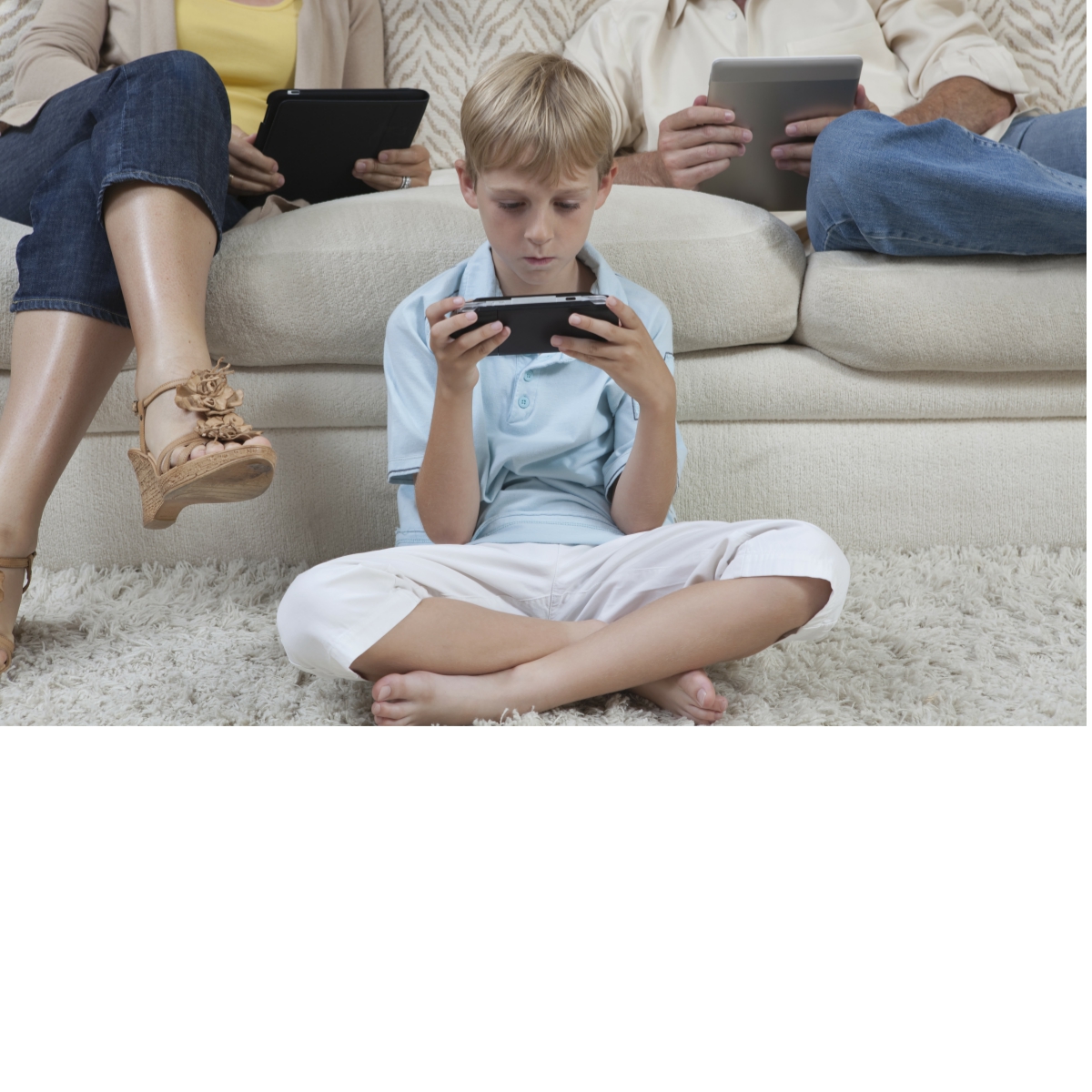Parenting During a Time of Screens and Devices
Screen time and device use are two of the biggest causes of arguments in today’s home. Parenting in today’s society is a challenge. Driving to and from school, extracurriculars, dinner as a family, homework, all before 9pm is a typical day for a family with school-aged children. The everyday hustle and bustle does not allow for much more to be thrown into the loop, but technology, social media, and gaming are certainly prevalent concerns for parents.
There’s a difficult balance for today’s parents. While devices can provide entertainment and educational activities, there are also negative aspects of the technology. Not only can children be easily exposed to content that is too mature for them to process, but there are several apps and games that have chat systems that are not well monitored or locked down. Additionally, excessive screen time has negative effects on eyesight and sleep patterns. Navigating social media and learning guidelines around various apps is an important skill for children. Educating young ones can begin at home with parents, and there are several easy ways to do just that.
Is limiting screen time for children really important?
Benefits of Less Screen Time
- Better sleep
- Decreased Body Mass Index
- Better academic performance
- Increased physical activity
- Reduced aggression
- Improved social behaviors
- Reduced exposure to media violence
Negative Effects of Excessive Screen Time:
- Sleep Problems
- Obesity
- Behavior Problems and increased aggressive behaviors
- Academic problems
- Increased violence
Recommendations
The current recommended screen time amount for children is no more than two hours per day. This is less for children ages two-five years, which is only one hour per day. While this seems like an easy goal, you will be surprised at how quickly just one or two hours adds up. With one tv show in the afternoon and some various surfing, app usage, or listening to music, and you’re up to two hours easily.
What about weekdays vs. weekends? This is of course dependent on the family, ages of kids, etc. My general recommendation is to cut it out during the week when possible, limiting it to use for homework or listening to soft music while relaxing or studying. During the weekends, set a timer to go off every 30 minutes, so it doesn’t become an all day activity.
It can be challenging to keep a close eye on screen time for individual children, particularly on the weekend. There are several options for apps that place parental controls on devices. Most of the apps set timers, block apps and websites of your choice, and track what sites or apps are being used.
Top Rated Apps for Parental Control and Limiting Screen Time
There are several apps for parental control, limiting screen time, blocking websites, apps, and more. These are currently top rated on the iTunes store.
- Ourpact
- Kidslox
- Google Family Link
Adults and Screen Time
Adults that work full-time spend an average of eleven hours looking at a screen per day. Many of the negative side effects of screen time are uncomfortable and can hinder your work productivity. Strained, tired, and dry eyes, and headaches are a few symptoms of Computer Vision Syndrome, a real diagnosis that many have or are at risk for. So while you’re busy limiting your child’s screen time, think about your own and the example that you are setting.
For those of us that are on computers frequently, blue light blocking glasses are now readily available and can be ordered with or without prescription lenses. Blue light blocking glasses filter out harsh blue light from your device screen, creating less eye strain. This is a nice option if you’re on your device frequently in addition to a computer. Screen brightness, colors, and filters can all be changed as well to filter out blue light and make it more comfortable to look at. The 20-20-20 rule is also an easy way to reduce eye strain when at a screen for extended and continuous periods. Every 20 minutes, look away to a place that is 20 feet away, for 20 seconds. Blink frequently, relaxing your eyes.
Building Your Awareness:
The rapid rate of development of new games and apps on electronic devices makes it challenging for anyone to keep up with the “latest” in gaming or social media.
My favorite resource for parents is www.commonsensemedia.org. Common Sense Media gives age suggestions, rankings, and more information for games, apps, books, movies, tv shows, etc. Quite often the suggested age for a game may be much older than what is given on the actual game.
Real parents add opinions on the site, and point out what content and material may be inappropriate for particular age groups. Kids also rank various games, books, etc on the site as well. Several games have a public chat portion where anyone can chat with your child. This list includes many games with a social media emphasis, or videos and conversations with others who are strangers to you.
Social Media Apps to Know:
- BIGO – Live – teens post live videos of themselves to the community on the app. The posts are public. In response to videos, you can send gifts to one another in the form of “beans”. These “beans” cost real money. Comments and videos can be explicit and mature for young kids, as well as many teens.
- Bitlife– This game is similar to Sims and encourages good “life” choices during the game to stay alive. If your character dies, you get to start over. Bitlife includes mature content including drugs, drinking, committing crimes, and gambling.
- Discord– This app is used as a chat room and an easy way to socialize with others. Adult content and other mature material is easily shared within the app.
- HOLLA: Live Video Room Chat– This app is set up to chat with strangers via video. You match with a stranger upon logging on, or choose a stranger to talk with by swiping, similar to the Tinder dating app. HOLLA also uses the location feature. This app has a login at the beginning asking for a birth date and a few questions. The entry system is simple and easily manipulated.
- Lipsi- This app lets users post anonymous comments to and about other users. Comments are positive or negative, setting up users to easily feel inadequate and unconfident upon use.
We hope some of these links, apps, and tips make a difference for your family. We also hope they help you to guide your children to be responsible with technology! Check out some of our calendars for Things to Do in the area, while you’re fading out some of those devices!



